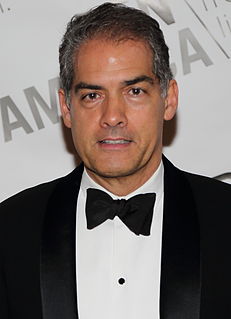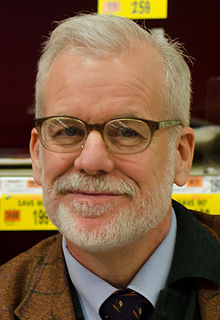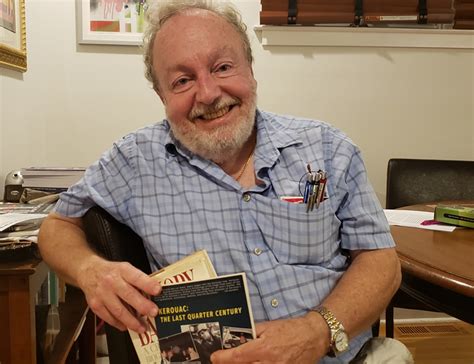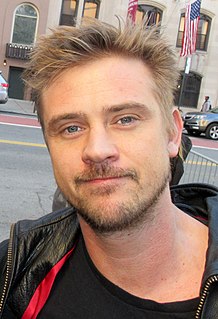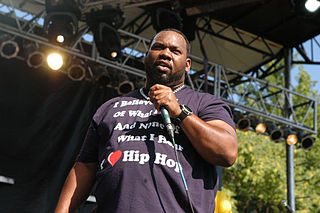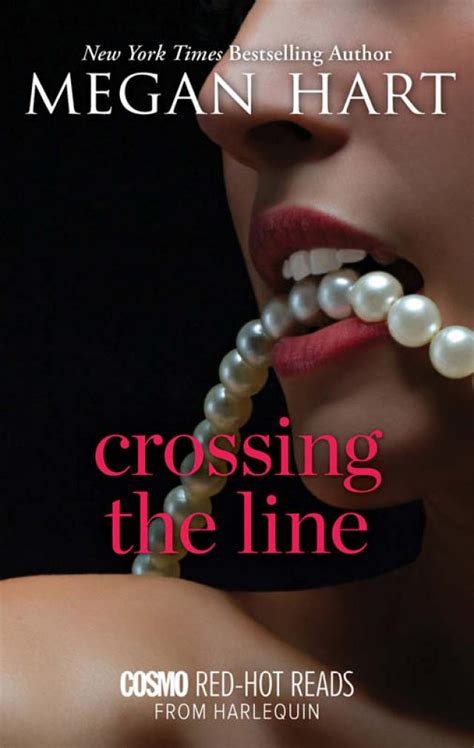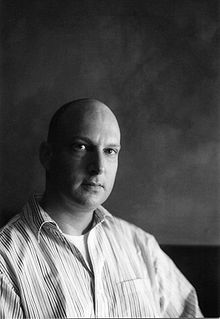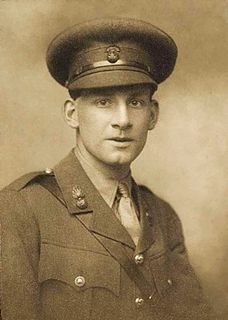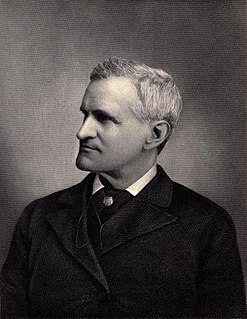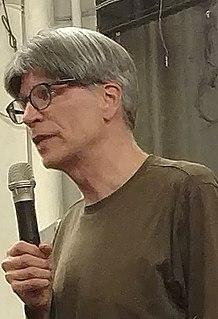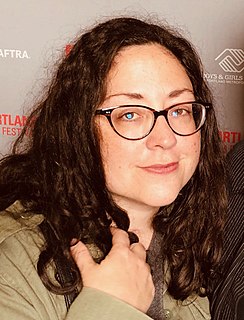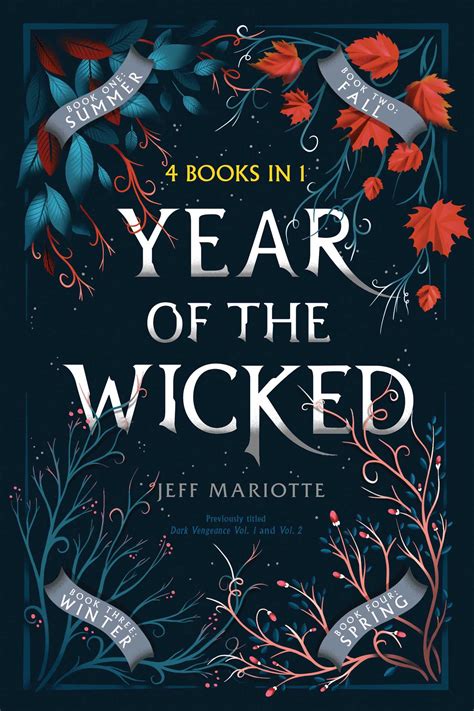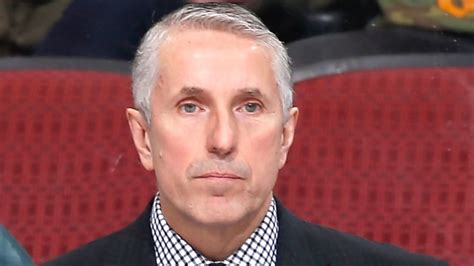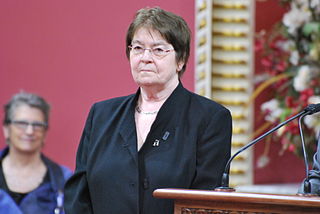Top 180 Narrator Quotes & Sayings - Page 3
Explore popular Narrator quotes.
Last updated on April 19, 2025.
Nostalgia for people, cultures, everything. There's an ability to use these marks to note things that are erased, deleted. Traces are a species of history, of evidence. It's a way for the way the narrator to construct a semblance of self, even though all of this creates a deception, a way to think of one's traces as a real way to define oneself. The trace is fallible, impermanent. It's one of the motives I had in mind throughout the text.
For me, it's always difficult when a historical film claims to depict or represent a reality that none of us can know, that is always different. It's always the case. We never know what happened then. So my approach with the narrator is to question that, to leave that open, to underline the fact that this is uncertain.
You can do everything differently in a novel. Hero narrates the novel; we're in his head. You're hearing all his thought processes and you're hearing him call himself out on his bad behavior. You don't have the benefit of that narrator in a movie. What you see a character do, very often, becomes that much more important because you don't have him editorializing it for you.
A lot of crime writing suffers from treading water. I feel an obligation to move the character on and not repeat myself. I try to fit him into a different period and a different agenda. That way, you learn slightly more about his personal history in the tradition of the unreliable narrator. It makes it more challenging to write.
Nothing ever begins. There is no first moment; no single word or place from which this or any story springs. The threads can always be traced back to some earlier tale, and the tales that preceded that; though as the narrator's voice recedes the connections will seem to grow more tenuous, for each age will want the tale told as if it were of its own making.
When I read to children, I try to become the characters. It's great if you can make a separate voice for each character. Sometimes you can lower your voice with excitement or get more intimate about it: you can lean forward and engage the children as a narrator or as a reader. It's particularly important that you find the voice that you want to use for each character, because then children can imagine that person as you're reading aloud. And of course, the illustrations help enormously.
Once I got interested in organized crime, and, specifically, Jewish organized crime, I got very interested in it. I have learned that, like my narrator Hannah, I'm a crime writer in my own peculiar way. Crime with a capital "C" is the subject that I'm stuck with - even Sway is about "crime" in a certain way. The nice thing about crime is that it enables you to deal with some big questioO
Early on, I settled on the first-person strategy as a way to deal with exposition and world-description issues. As long as the book is, it could have been far longer had I gone with an omniscient third-person narrator, or multiple point-of-view characters, since either of those would have enabled me to impart much more detailed information about the history and geography of the world.
I came to nonfiction through journalism. My first book was journalism, and it was so frustrating to me, while I was writing it, that I wasn't capturing the moments the way they were when I lived them; I was filtering and re-filtering. I had to come to terms with the fact that I couldn't and shouldn't claim authenticity. Then, when the book was published and I gave readings, I'd hear myself read and it was like I was eavesdropping on a dream - even with myself as the narrator. I knew that guy but couldn't exactly recognize him.
There’s a writer for you,” he said. “Knows everything and at the same time he knows nothing.” [narrator]It was my first inkling that he was a writer. And while I like writers—because if you ask a writer anything you usually get an answer—still it belittled him in my eyes. Writers aren’t people exactly. Or, if they’re any good, they’re a whole lot of people trying so hard to be one person. It’s like actors, who try so pathetically not to look in mirrors. Who lean backward trying—only to see their faces in the reflecting chandeliers.
Kerouac's books portray a hero and narrator free and easy, confident, sure of his rebellion against the American system. In reality, Jack was torn between Catholicism, Buddhism, and his own demon-driven pursuit of kicks, between spirit and flesh, between mom's house and the Beat coffeehouse, patriotism and subversion, men and women, society and solitude, carousing and meditation, sacred and profane, secular and divine. It's a miracle he survived as long as he did.
I don't know if you've ever seen this film called Elite Squad, which, actually Wagner [Moura] is the one narrating that. José Padilha, one of creators of our show, that's where the style comes from. It has a heavy narrator. But I thought about it a lot. You [the viewers] have to work for the show, unless you're bilingual. It's a really aggressive type of filming, it's engaging, you've got to read.
To what or whom does Lizzie Harris direct the imperative title of her startling first book, Stop Wanting? To the reader, the narrator, to desire itself, or to lack? This is a work of complexly, ambiguously layered narratives and identities. The opening poem asserts I want to say what happened / but am suspicious of stories. These lines become an ars poetica for the whole of this painful and exceptional collection in which the unspeakable is stubbornly confronted by a searing eloquence. This is a commanding debut.
Before I think we was emcees, we was more or less narrators too. Because if you look at the early '80s hip hop, it was so much creativity goin' on with artists like then, like Slick Rick, then you had Rakim, and you had these different kind of artists back then. And we was a marble cake of all these artists. So I didn't have a problem with writin' stories because I felt like that was somethin' I loved to do. Even to this day, I really consider myself an entertainer-slash-narrator. I like to talk about stuff that goes on.
The moment in which the narrator, reaching for his boots, becomes vividly and lastingly aware of the finality of his grandmother's death is another such moment. It would be interesting to explore Proust's great novel from the perspective of seeing how stable synthetic complexes are formed and modified.
I learned capacity for self-reflection very early, finding it through interior monologues that books are so good at and that visual media is so bad at because it's so boring - nothing's happening. In a book, you can be inside the narrator's head for 50 pages, and nothing needs to happen. Then you learn to be inside your own head without something needing to happen. It's a very good antidote to a crazy, restless, "what's next?" culture - that you can just be in your own head and nothing is happening except that this is a rich place. I love that.
I didn't set out to write a book with no real male characters, but men were not important to my narrator, who was much more interested in maternal and pseudo-maternal love, so they were unimportant to me. I didn't even notice the lack of men in the story until I finished it. But once I did notice it, I was kind of delighted. Apparently, my subconscious is totally sexist.
Every Day Is for the Thief is a vivid, episodic evocation of the truism that you can't go home again; but that doesn't mean you're not free to try. A return to his native Nigeria plunges Cole's charming narrator into a tempest of chaos, contradiction, and kinship in a place both endearingly familiar and unnervingly strange. The result is a tale that engages and disturbs.
I am interested in levels of brain discourse. How articulate are the voices in your head? You know, there's a different voice for the phone, and a different voice if you're talking in bed. When you're starting off with a narrator, it's interesting to think, where is their voice coming from, what part of their brain?
Originally the structure was . . . a modern narrator who would appear intermittently and talk about his memories of his grandmother, which would then be juxtaposed against scenes from the past. But the stories from the past were always more interesting that the things in the present. I find this almost endemic to modern plays that veer between past and present. . . . So as we've gone on developing GOLDEN CHILD, the scenes from the past have become more dominant, and all that remains of the present are these two little bookends that frame the action.
I first read 'Lolita' when I was 16, which I think is a little bit young. But it was a thrilling and disturbing read because it was the first time I really sensed that you could have an unreliable narrator, that you didn't have to sort of tell the truth in a narrative, that there could be something deeper and richer and more complicated going on.
These types of films that are psychologically sort of dark at times, I find extremely exciting to do because there's always something to think about. There's nothing more boring than to show up on set and say a line and know that your character means exactly what they say. It's interesting to have an unreliable narrator in a film and that's what both of those films have been.
In general, in all my films, I choose to create a certain mistrust, rather than claiming that what I'm showing onscreen is an accurate reproduction of reality. I want people to question what they are seeing onscreen. In the same way as I used the narrator, I also used black and white, because it creates a distance toward what's being seen. I see the film as an artifact rather than a reliable reconstruction of a reality that we cannot know.
The narrator blames the birds. And you want to blame the birds as well. I blamed the birds for a long time. But in this story everyone is hungry, even the birds. And at this point in the story so many things have gone wrong, so many bad decisions made, that it’s a wonder anyone would want to continue reading.
Consider the different narrative styles within the story, and the glee with which the "moralistic narrator" celebrates Aschenbach's fall - maybe, then, this is a hostile verdict and the international fame is warranted after all (given that Mann modeled his protagonist so closely on himself, it would be quite odd if he had intended Aschenbach's literary inferiority to be a fixed part of the interpretation).
Philip Galanes has fashioned a novel both bleak and funny about a young man's struggle to sort out his troubled love: the too-strong love for his mother, the too-weak love for his suicidal father, and the all-consuming love of anonymous sexual encounters. Pointed and acute, this story tells of the narrator's many betrayals of others and their many betrayals of him. It exists in an uncomfortable moral space where the humor of terrible things sometimes outweighs, but never obscures, their poignancy.
For it is humanly certain that most of us remember very little of what we have read. To open almost any book a second time is to be reminded that we had forgotten well-nigh everything that the writer told us. Parting from the narrator and his narrative, we retain only a fading impression; and he, as it were, takes the book away from us and tucks it under his arm.
I came to the realization that I had failed in some respects because I had been more of a benevolent narrator than the world I saw reflected around me, and in the lives of the people in my community, and in my family. There was no benevolent God sparing us pain and loss and grief and struggle. If I was going to continue to write about the place where I am from, and the kind of people who live in my community and who are in my family, I owed it to them to be honest with what our lives are like.
Usually when I finish the draft of a book, I'm sure I'll never write another one. I'm just that tired and sick of myself. But then another idea starts percolating. It usually begins with the narrator's name, then some idea that intrigues me about her life or situation. I try to ignore it as long as I can, because I know when I start writing, I'll be right back into it, every single day. But eventually, I just have to. It's a compulsion!
Faithfulness to the truth of history involves far more than a research, however patient and scrupulous, into special facts. Such facts may be detailed with the most minute exactness, and yet the narrative, taken as a whole, may be unmeaning or untrue. The narrator must seek to imbue himself with the life and spirit of the time. He must study events in their bearings near and remote; in the character, habits, and manners of those who took part in them. He must himself be, as it were, a sharer or a spectator of the action he describes.
Time passes, as the novelist says. The single most useful trick of fiction for our repair and refreshment: the defeat of time. A century of family saga and a ride up an escalator can take the same number of pages. Fiction sets any conversion rate, then changes it in a syllable. The narrator’s mother carries her child up the stairs and the reader follows, for days. But World War I passes in a paragraph. I needed 125 pages to get from Labor Day to Christmas vacation. In six more words, here’s spring.
At a time when history made its way slowly, the few events were easily remembered and woven into a backdrop, known to everyone, before which private life unfolded the gripping show of its adventures. Nowadays, time moves forward at a rapid pace. Forgotten overnight, a historic event glistens the next day like the morning dew and thus is no longer the backdrop to a narrator's tale but rather an amazing adventure enacted against the background of the over-familiar banality of private life.
So a lot of what you see in the Baroque Cycle is me wanting to be one of those guys. In the case of Anathem, I needed something that was more formal, less flashy, as if it had been translated from the classical language of another planet, but enlivened with slang terms that a teenage narrator would enjoy throwing around.
The truth of the matter is that for all the drive-in movie references, what Weston Ochse has really created in Multiplex Fandango is a travelogue. Acting as narrator and guide, Weston takes you on a trip to places familiar and obscure-New Orleans, the Sonoran desert, Mexico's Pacific coast, and the dark, impenetrable reaches of the soul. He shows off sights that chill the blood, and as with any good trip, the things seen and experienced along the way will stay with you for a lifetime.
I'm surprised how often I'm asked about being a man with a woman narrator. I'm not the first, nor will I be the last. It's been done forever, but we seem to forget that. The whole notion of "write what you know" is not just boring, but wrong. Lately it seems like every novel has to be a memoir. I'm a boring person, but I'm a writer with a relatively vivid imagination. And when people ask me about how I find the voice of a woman, I tell them that my life is run by women.
Any story has a beginning, middle, and end, of course, but the question is, where do you start it exactly? It's about a guy who is murdered in a fistfight, but how does it evolve and what does it mean? That's what I discovered scene by scene, and this innovation of coming in as a first-person narrator was a complete surprise to me. It just happened.
I was taken in the Spirit to the burning bush on Mount Horeb, Moses' "first ascension," and allowed to witness the encounter he had with the Lord there. Throughout the visitation, I was enabled to know and feel the thoughts and emotions of Moses' inner being. ... There was a Holy Narrator beside me who helped me understand what I saw and heard, and he made references to relevant passages of Scripture. There were other Biblical figures also present - Joshua, Samuel, David, and even the Lord Jesus were there.
I don't really think of my narrator in terms of gender. I think of them much more in basic emotional terms. As an author, you either love yer peeps or you don't. There's no such thing as a "masculine voice" or a "feminine voice". Men and women think and speak and act in, like, a zillion different ways. Also, as a gross generalization: women tend to live closer to their feelings than men.
In fiction the narrator is a performance of voice, and it can be any style of voice, but I'm interested in the ways that a voice that knows it's telling a story is actually telling a different story than it intends to. In the way that I can sit here and tell you what I had for breakfast, but I'm really telling you that I'm having an affair, something like that. And I don't think my writing is plain, but I think a lot of my characters are just talking. There is vulnerability there, in that we can start to see through them, we can start to see where they're deceiving themselves.
The text moves like a small crustacean with compound eye and complex nervous system; throbbing, involuted, it becomes a parasite on a different body, animal, using ‘filiform protrusions through which it sucks the vital juices of its host.’ Parasite or creature in mutation on the shore, torrid / delirium: mordant mortality, systematic competition the narrator against the I, leaking gas, a lapse of memory against a promise, an inset in a book. A muscular, involuntary bulging in the breast, circling all its inner surface: mesoblast: visceral.
We want a sense that an important character, like a narrator, is reliable. We want to believe that a character is not playing ages or being coy or being manipulative, but is telling the truth to the best of his or her ability...We do not wish to be crudely manipulated...We want to be massaged by a masseur, not whapped by a carpet beater.
The ‘I’ character in journalism is almost pure invention. Unlike the ‘I’ of autobiography, who is meant to be seen as a representation of the writer, the ‘I’ of journalism is connected to the writer only in a tenuous way—the way, say, that Superman is connected to Clark Kent. The journalistic ‘I’ is an overreliable narrator, a functionary to whom crucial tasks of narration and argument and tone have been entrusted, an ad hoc creation, like the chorus of Greek tragedy. He is an emblematic figure, an embodiment of the idea of the dispassionate observer of life.




